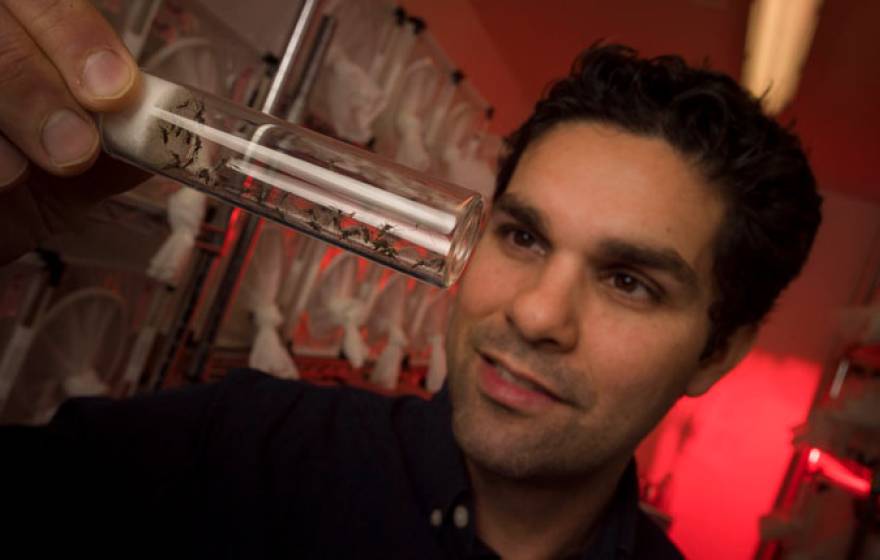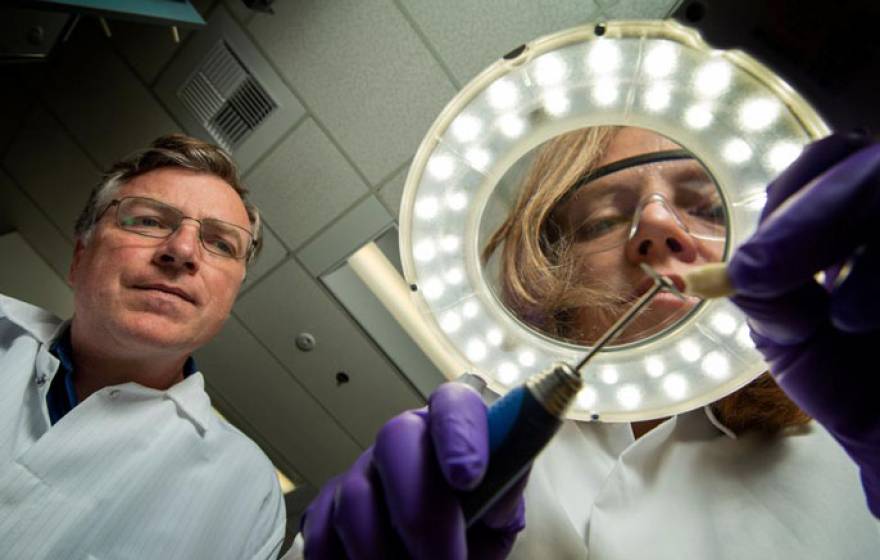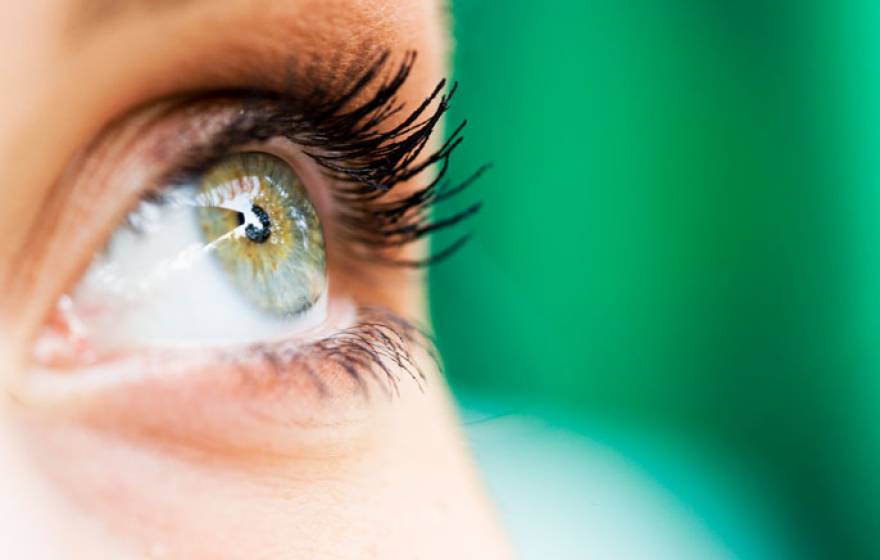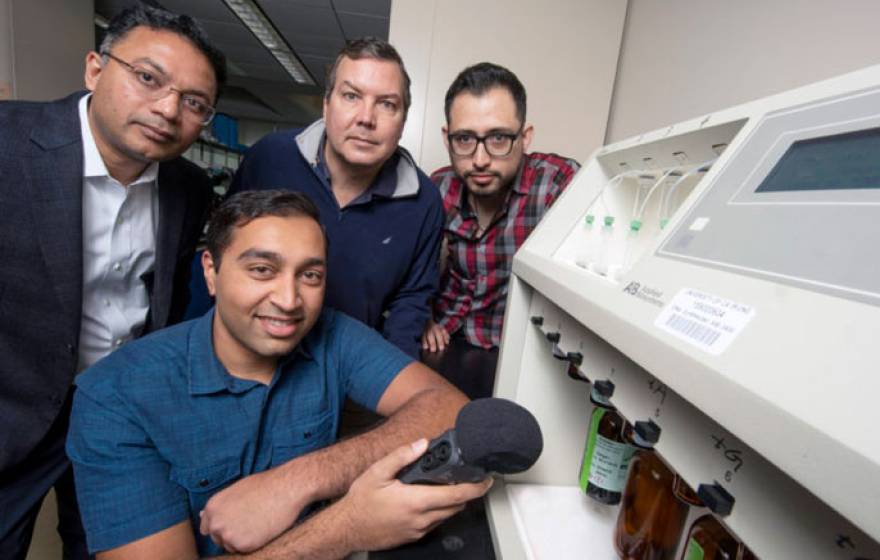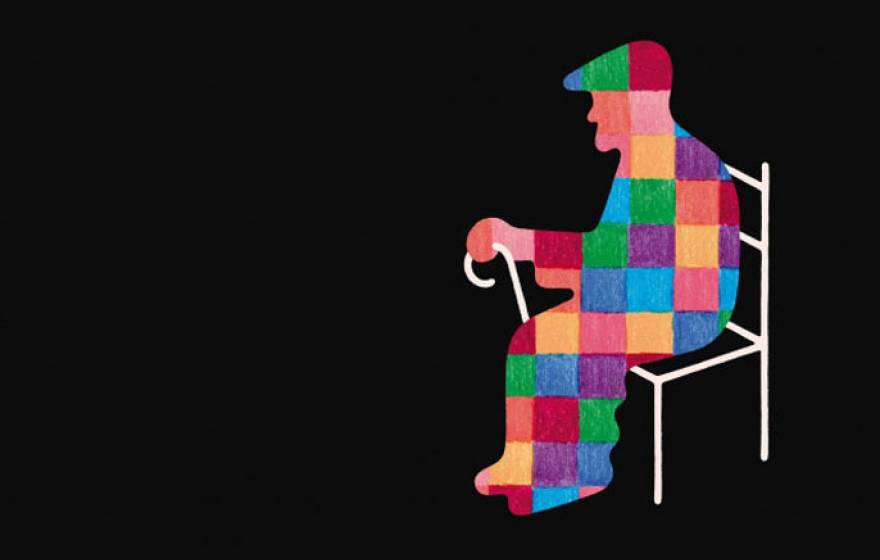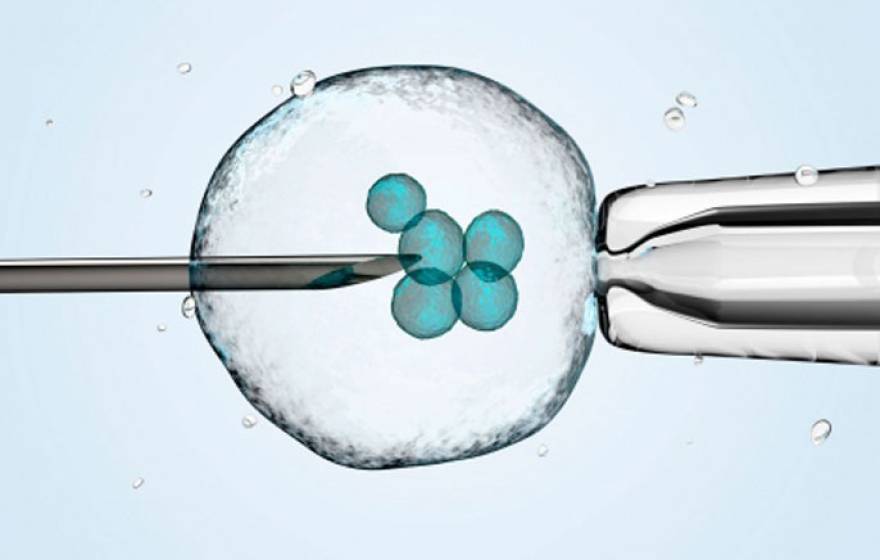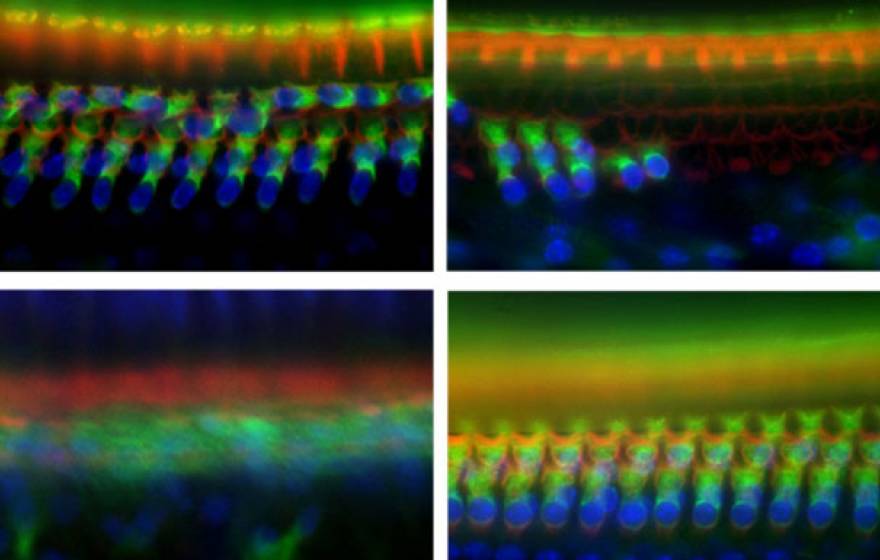An international team of scientists has synthetically engineered mosquitoes that halt dengue virus transmission.
The mosquito that repels the dengue virus
Where DNA falls short in cracking crimes, scientists can use this new tool
Crime buffs know DNA has transformed forensics, but isn't always good enough. That's where proteomics comes in.
Alzheimer's gene may impact cognition before adulthood
A new finding suggests a gene linked to Alzheimer's may also be associated with lower IQ scores in childhood.
Why are humans the only species prone to heart attacks?
Gene loss 2 to 3 million years ago may explain why coronary events are common in humans but rare in other animals.
Regaining sight
Blind mice regain sight with a simple gene therapy that could be available to humans in three years.
UC Irvine, UC Riverside scientists identify a new world for hackers
A sensitive DNA synthesis procedure will need more protection to ensure bioterrorists aren't listening in.
Risk tolerance: It's in your DNA
Large study identifies genetic variants linked to risk tolerance and risky behaviors.
Bulldogs’ screw tails linked to human genetic disease
Scientists find the genetic basis for these dogs’ appearance, and link it to a rare inherited syndrome in humans.
The mystery of the super-ager
Researchers are trying to figure out the secret to some elderly people's success.
Sex chromosomes hold the secret to female longevity
Two X’s and ovaries extend life and protect mice from aging.
What’s so controversial about the first gene-edited babies? Experts explain
Researcher He Jiankui’s announcement of the first babies with DNA edited as embryos causes concern.
Could a drug prevent hearing loss?
A single gene plays a critical role in noise-induced deafness — but an experimental drug appears to provide protection.
